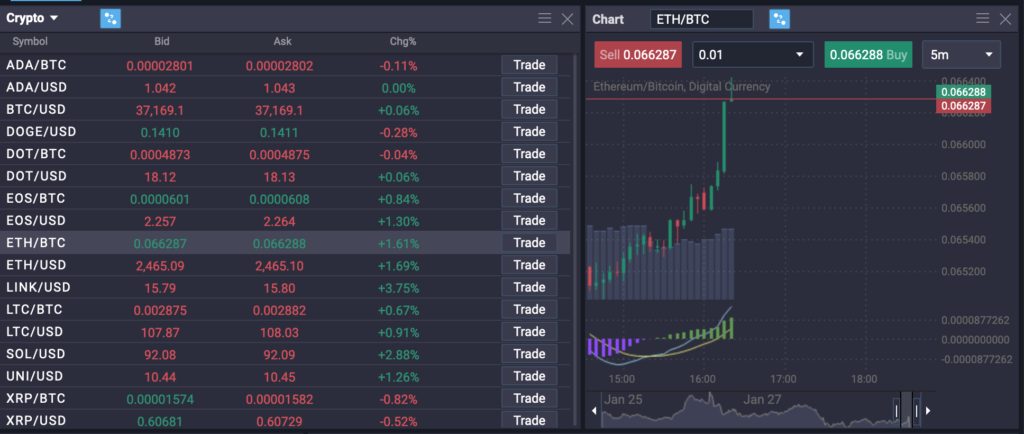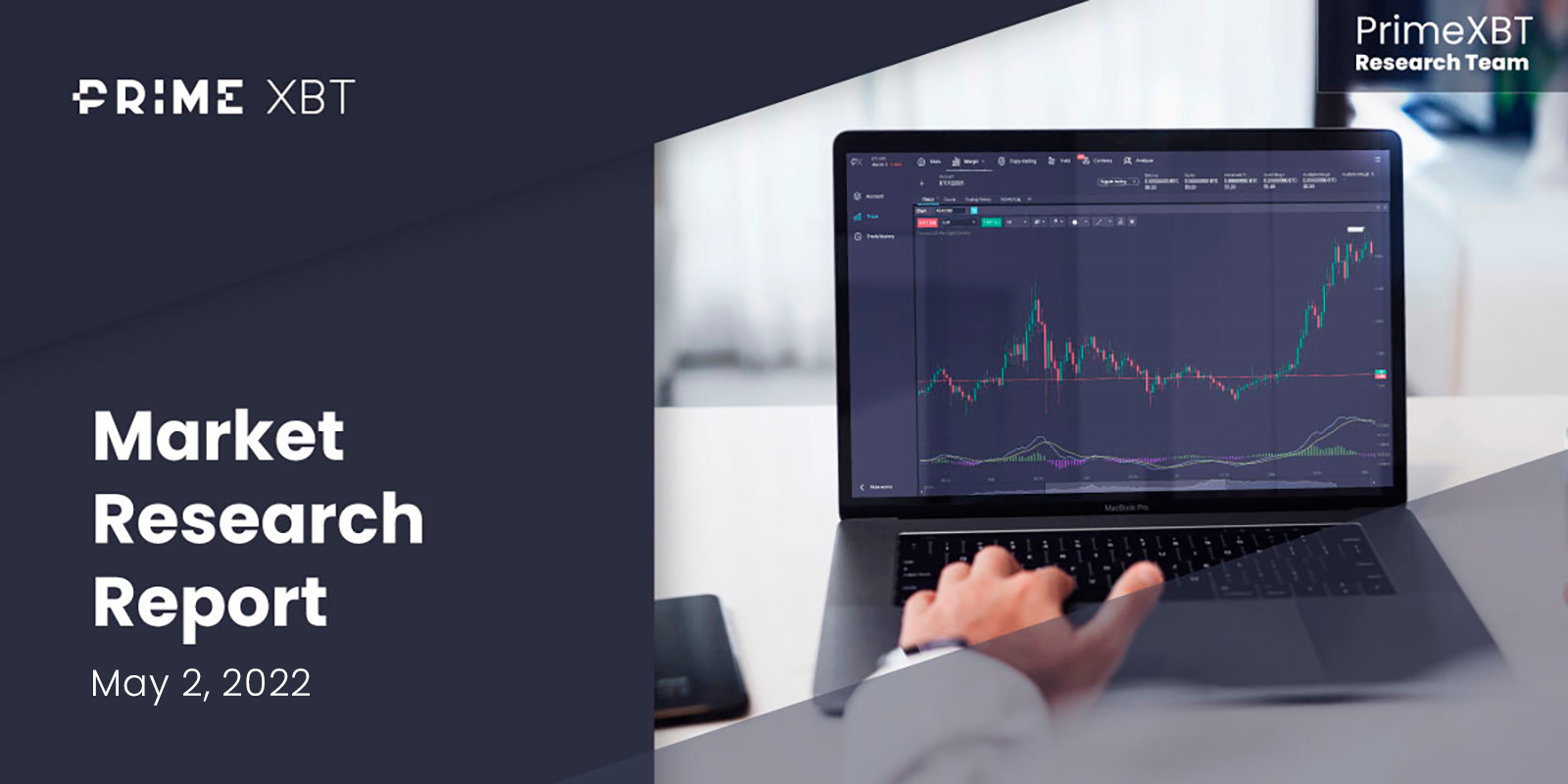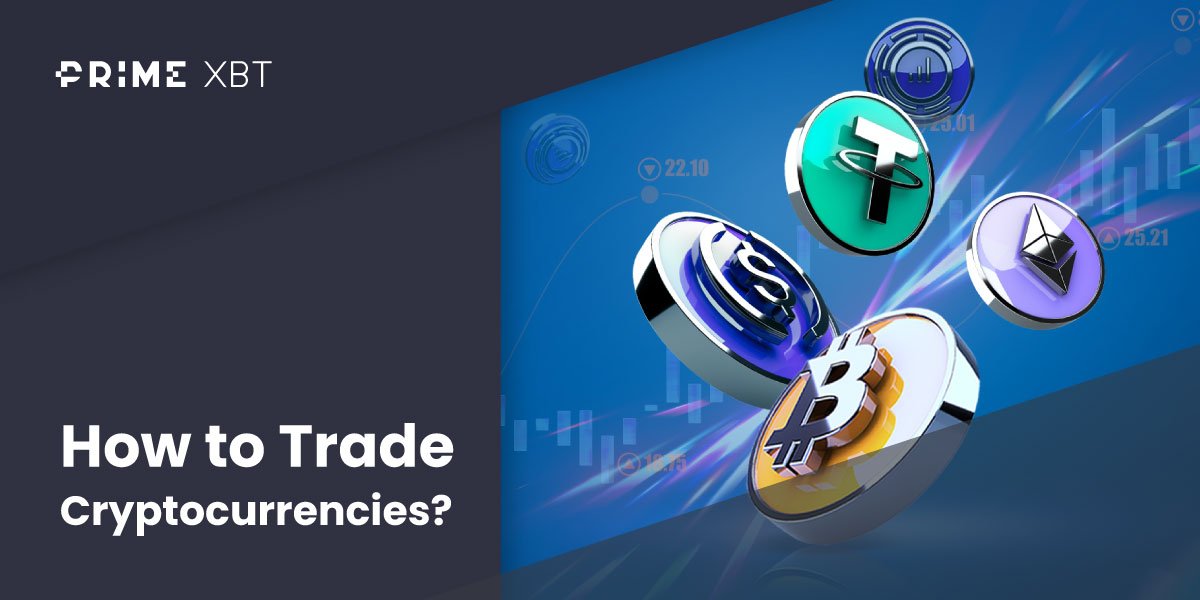Want to profit from falling prices in ETH? Then you’re in the right place. In the following article, we’ll explain what shorting means, how to short Ethereum, and how you can profit even in times of falling prices in the cryptocurrency market. There will also be some practical examples and charts to make the concept crystal clear.
What is Shorting?
If you want to make a profit when the price of Ethereum is falling, shorting can be your best friend. Shorting, or short-selling, allows you to “short” a financial instrument and profit from falling prices.
When you short ETH, you’re essentially borrowing the asset from your broker, selling it at the current market price, and buying it back when the price falls in order to return the coins to your broker. The result: You make a profit that equals the difference between the selling prices and the rebuying price.
On modern trading platforms, all of this is conducted in a fully automated fashion. All you need to do is to analyze the market and decide whether prices will rise or fall. If you think that they’ll fall, you short the market, and your broker takes care of the rest.

What are the Risks of Shorting ETH?
Shorting Ethereum doesn’t come without risks. Whether it is the risk of losing more than you deposit, the theoretical unlimited downside risk, or the volatility of the price itself, you need to be prepared to analyze the market and make your best judgment before shorting the market.
Losing more than your deposit
One of the main risks of shorting Ethereum is that you can lose more capital than you have in your trading account. This is especially true if you’re overtrading, i.e. overleveraging your trades, and in times of high price volatility. During market turbulence, it’s not uncommon to see the price of ETH rise hundreds of dollars in a matter of minutes.
Unlimited downside potential
Another major risk when shorting ETH is that short-sellers encounter unlimited downside potential. The problem is that, when shorting, you only make a profit when prices fall. However, prices can only fall to $0, but can theoretically rise indefinitely. Unexpected news can cause prices to spike to the upside for thousands of dollars.
Prices can be very volatile
As you already know, cryptocurrencies can be extremely volatile at times. While high price volatility can create many profitable trading opportunities, it can also lead to large losses for beginner traders.
Active management
Just like trading in general, shorting requires active management of the open trades. Traders should stay up-to-date on market fundamentals and important technical levels in order to prevent large losses while shorting ETH or any other cryptocurrency.
Ways of Shorting ETH
There are many ways one can benefit from falling prices in ETH. The first one is pretty clear – by shorting. However, trading correlated markets or taking an indirect short position in ETH by going long in another coin are other viable choices as well.
Shorting using margin on exchanges
The most popular way to short Ethereum is to use a margin facility from a broker or an exchange. This allows you a seamless transaction of your short trade behind the scenes, without you having to know from whom you’re borrowing the coins or how to return them.
Everything is done automatically. All you have to do is hit the “sell” button to short, and the “close” button to close (a.k.a. cover) your short trade. Shorting using a margin facility also comes with the benefit of margin trading, so you can borrow way more coins than your initial trading account size.
Taking a short by going long elsewhere
Another way to benefit from a falling price in ETH is to go long in an inversely correlated market. Inversely correlated markets are simply markets that go in the opposite direction, i.e. when one market rises, the other market falls, and vice-versa.
For example, if you think that Bitcoin will outperform Ethereum or that Ethereum will fall in price relative to Bitcoin, you could buy (go long) Bitcoin and exchange it later for Ethereum after its price has fallen. This allows you to indirectly benefit from the falling price in ETH, without having to short the coin itself.
How to Short Ethereum on Noble Trade Hubs
Shorting Ethereum on Noble Trade Hubs’s award-winning platform is extremely easy. Simply select the cryptoasset you want to short in the markets list on the left (in our case, ETH/BTC our ETH/USD). The platform immediately displays the actual price-chart of Ethereum, together with additional tools and functions.

To short Ethereum against Bitcoin, i.e. to profit when the price of Ethereum relative to that of Bitcoin falls, you would select ETH/BTC. On the other hand, if you want to simply short against USD, then select ETH/USD.
The next step is to find a profitable shorting opportunity in the market. Analyze fundamental data or take a look at the price chart to identify important technical levels that could form a high-probability trading setup. Is the price near an important support or resistance area? Or is the price forming a bearish wedge pattern?
After you’ve found a level to short, the next step is to define your trading size. Here, you also need to take into account your leverage ratio and required margin for the trade. For example, if ETH trades at $3,000 and you want to buy 10 ETHs with a 100:1 leverage, your total margin would be equal to $300 (1% of $30,000).
In other words, you need to have at least $300 in your account to open that trade, or you’re at a high risk of receiving a margin call. Always pay attention to the required margin and your free margin when opening a trade with margin trading.
Now that you have defined your position size, simply hit “Sell” and your trade will immediately appear in the “Positions” section of the trading platform. You have just shorted Ethereum and will profit from falling prices in the coin!
When is a Good Time to Short ETH?
Picking the right time to short ETH is as important as actively managing your risks and open trades. That being said, picking the right time to short ETH is not always easy. The future price-action of the coin depends on several factors, such as overall market sentiment, or whales opening and closing large chunks of orders at a certain price.
If you’re a technical trader, the best way to short ETH is to look for high-probability technical setups in the chart. For example, if Ethereum forms a bearish chart pattern, such as a bearish wedge, triangle, pennant, head and shoulders pattern, or double top, that might be an excellent opportunity for short-sellers.
Other good times to be short in Ethereum are during regulatory changes and uncertainties around the cryptocurrency market, when risk sentiment in the market deteriorates, or when other coins, such as Bitcoin, show strong bearish momentum in their price-chart.
You should also stay up-to-date on the long-term and short-term outlook of Ethereum. The best crypto traders out there are always on the top of market news and technical patterns that form in the price. Here come a few tips to determine the long-term and short-term outlook of ETH.
Long-term outlook
Here, we consider the long-term outlook as a market outlook for the next 3-6 months. Depending on your trading style, long-term might represent a different time horizon for you. For scalpers, long-term could mean the next day, while position traders would consider long-term as the next few years.
The long-term trend of a market is best determined by looking at the daily or weekly price chart. Open up the daily chart of ETH and look for uptrends and downtrends in the market. Naturally, you want to be a short-seller during downtrends, i.e. when the price forms consecutive lower lows and lower highs.
Trading with the trend is one of the best decisions you can make in the market. And once you identify a long-term downtrend, look for strength in the downtrend (i.e. short-term corrections) to get the best possible price for shorting.
Short-term outlook
For most day traders, the short-term outlook is more important than the long-term one. The short-term outlook represents your trading horizons, which means you’re directly involved in the short-term performance of a market when opening a trade.
Again, technical analysis provides a clear answer to determine the short-term outlook of Ethereum. Chart patterns as previously mentioned, candlestick patterns like bearish engulfing and shooting stars, or trend-following tools like trendlines and channels can all provide valuable hints about the short-term ETH outlook.
Remember, the best way to trade the short-term outlook of a coin is to trade in the overall long-term direction. In other words, the best short trades in ETH can be found when the long-term trend in the coin is to the downside.
Why Short ETH on Noble Trade Hubs?
Interested in shorting ETH and potentially profiting from falling prices? Noble Trade Hubs could be your answer. There are many benefits of shorting ETH on Noble Trade Hubs. Among many features, we offer an award-winning and lightning-fast trading platform, intuitive price-charts with advanced trading tools, and margin trading with leverage up to 100:1.
- Noble Trade Hubs trading platform. Our award-winning platform caters to both experienced and beginner traders. Whether you want to trade the most popular coins or less-liquid altcoins, we’ve got you covered.
- Intuitive price charts and tools. Our charts are highly customizable and come with dozens of technical indicators, including ADX, Bollinger Bands, and the Relative Strength Index. In addition, all indicators can be individualized to fit all popular – and less-popular – trading strategies. Charting is extremely important when shorting ETH, given the tendency of the coin to show strong price-action around important technical levels.
- Margin trading. Want to short ETH on margin? Noble Trade Hubs offers attractive margin accounts with leverage ratios up to 100:1! This means, for every $1,000 deposited, your buying power increases by a whopping $100,000. Margin trading allows you to profit even from small changes in the price. Let’s say you want to short 10 ETH at $3,500. If the price falls to $3,200, you’ve made a $3,000 profit while allocating only a small portion of your account for the margin.
- Copy-trading. If you feel like you don’t have the necessary experience yet, you can take advantage of our powerful copy trading module. With copy trading, you’re able to copy the trades of professional traders without having to perform the analysis of the markets yourself.
Usually, the best shorting opportunities can be found when the long-term market enters a downtrend, and the short-term market makes a lower high. This allows you to short at the best possible price during times of downtrends.
Can you short sell Ethereum?
Yes, Ethereum can be shorted on a margin account just like any other cryptocurrency. In addition, you can take advantage of leverage and magnify your profits, even when the price of Ethereum makes a small movement to the downside.
Can I short ETH with leverage?
Yes, ETH can be shorted with leverage. Leverage and margin trading magnify both your profits and losses, so make sure to follow strict risk management rules and actively manage your trades when trading with leverage.
What are the arguments against short-selling Ether?
The main risks of short-selling Ether are the possibility of losing more than you deposit, the unlimited downside potential, price volatility, and the need to actively manage your short trades.
What is the best way to short Ethereum?
While there are many ways to short Ethereum, arguably the best one is to use a margin account with a broker. This allows you not only to profit from falling prices but also to magnify your profits if your price prediction is correct.
What’s the best time to short Ethereum?
The best time to short ETH is when the overall market direction is down. Here, we need to distinguish between the long-term market trend and the short-term market trend.
Risk Disclaimer:
Investing in or trading gold or other metals can be risky and lead to a complete loss of capital. This guide should not be considered investment advice, and investing in gold CFDs is done at your own risk.
The information provided does not constitute, in any way, a solicitation or inducement to buy or sell cryptocurrencies, derivatives, foreign exchange products, CFDs, securities, and similar products. Comments and analysis reflect the views of different external and internal analysts at any given time and are subject to change at any time. Moreover, they can not constitute a commitment or guarantee on the part of Noble Trade Hubs. The recipient acknowledges and agrees that by their very nature any investment in a financial instrument is of a random nature and therefore any such investment constitutes a risky investment for which the recipient is solely responsible. It is specified that the past performance of a financial product does not prejudge in any way their future performance. The foreign exchange market and derivatives such as CFDs (Contracts for Difference), Non-Deliverable Bitcoin Settled Products and Short-Term Bitcoin Settled Contracts involve a high degree of risk. They require a good level of financial knowledge and experience. Noble Trade Hubs recommends the consultation of a financial professional who would have a perfect knowledge of the financial and patrimonial situation of the recipient of this message and would be able to verify that the financial products mentioned are adapted to the said situation and the financial objectives pursued.




